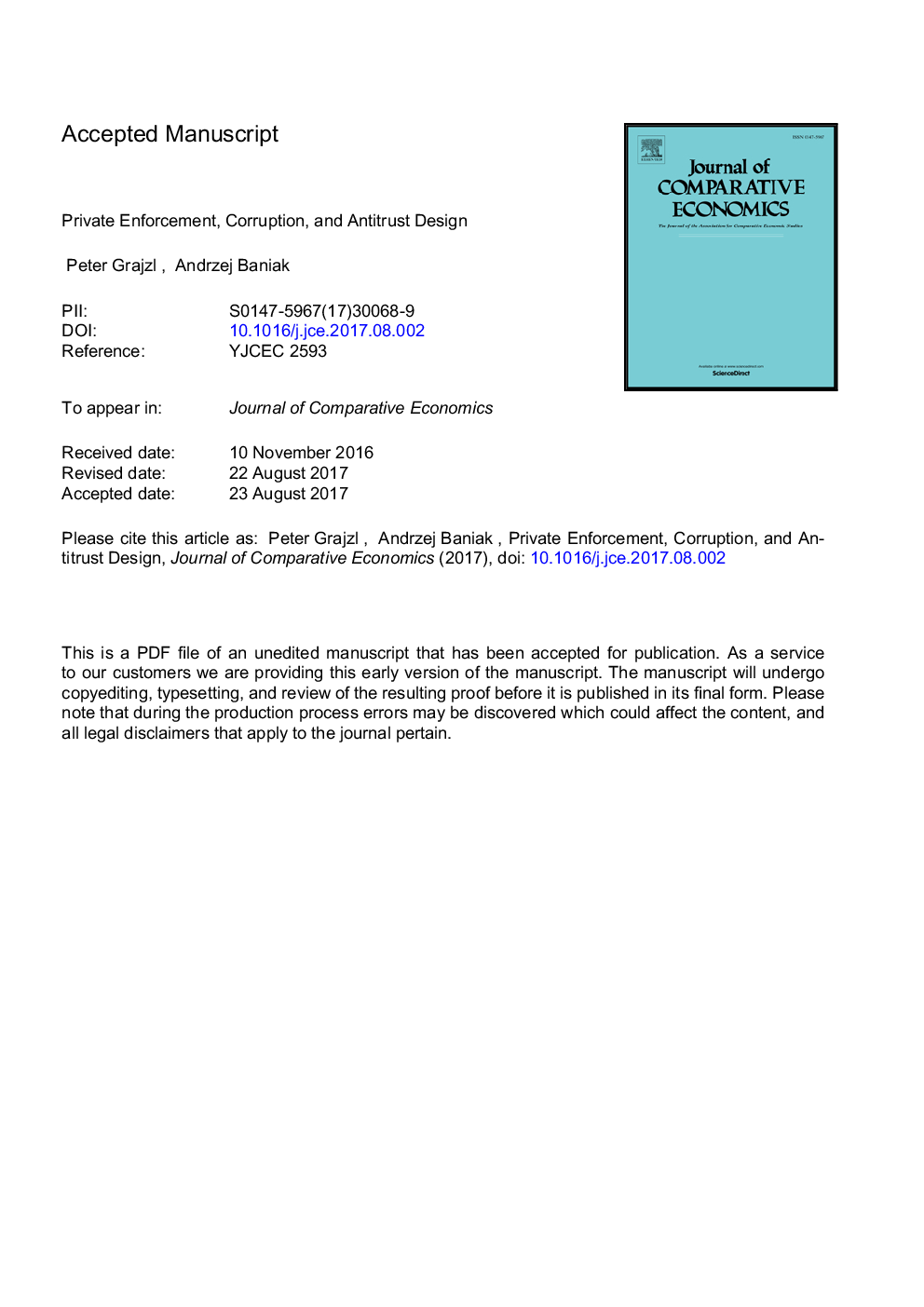| Article ID | Journal | Published Year | Pages | File Type |
|---|---|---|---|---|
| 7356927 | Journal of Comparative Economics | 2018 | 53 Pages |
Abstract
We examine how the rationale for enabling versus precluding private antitrust enforcement depends on whether antitrust enforcement is corruption-free or plagued by corruption. Corruption in courts affects the incentives to bring forth private antitrust lawsuits. This, in turn, along with corruption in antitrust agency enforcement, alters the incentives to commit antitrust violations. The social welfare effect of enabling private antitrust enforcement in the presence of corruption depends on whether corrupt officials in the ensuing bribery contests favor a particular firm and if so which one and to what extent. Under some circumstances, corruption actually increases the social desirability of private antitrust enforcement relative to the no-corruption scenario. Our analysis highlights that the effects of a given legal arrangement for antitrust enforcement critically depend on the corruption environment and, thus, that the appropriate design of antitrust institutions is context-specific.
Related Topics
Social Sciences and Humanities
Economics, Econometrics and Finance
Economics and Econometrics
Authors
Peter Grajzl, Andrzej Baniak,
